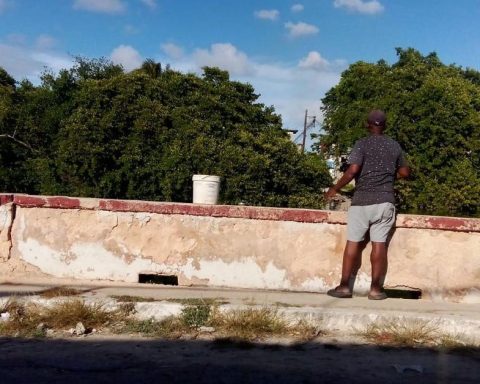MADRID, Spain.- The General Directorate of Public Health of the Canary Islands Health Service (SCS) reported This Tuesday, August 13, the first imported case of the Oropouche virus was detected in the Canary Islands. The affected person is a 49-year-old man, resident in Gran Canaria, who began to show symptoms compatible with the infection after returning from a trip to Cuba.
The patient was referred to the Insular-Materno Infantil University Hospital Complex after experiencing fever, diarrhea and joint pain. Suspecting a possible Oropouche virus infection, samples were taken and sent to the National Microbiology Center for analysis. Tests carried out in the Canary Islands had ruled out other diseases such as dengue, Zika and Chikungunya, and finally, Oropouche’s positive diagnosis was confirmed.
The Ministry of Health officially notified the case to the General Directorate of Public Health of the SCS, thus marking the first record of this infection in the Canary Islands. Fortunately, the man has responded favorably to the treatment administered and has not required hospitalization. However, he remains under epidemiological surveillance at home to ensure his complete recovery and avoid possible complications.
This case adds to those already reported in other Spanish autonomous communities, such as Galicia, Andalusia, the Basque Country and Madrid, all in travelers from Cuba.
Despite the outbreak in Latin America, the risk of transmission in Spain is considered low due to the absence of the mosquito vector.
He Oropouche virus It is a zoonosis transmitted by mosquitoes, and throughout 2024, in addition to Cuba, outbreaks have been recorded in countries such as Brazil, Bolivia, Colombia and Peru.
Since January 2024, around 8,000 cases have been reported in Latin America and the Caribbean and, for the first time, 19 imported cases in Europe.
The Oropouche spreads throughout Cuba
Cuban Deputy Minister of Public Health Carilda Peña García confirmed Recently there are cases of Oropouche fever and dengue in all provinces of the Island.
“There are cases of Oropouche in all the provinces of the country. Therefore, even if there is no circulation in a given municipality, it is in the province, and you travel, you move around and you can be the object of the mosquito bite,” warned the vice minister.
According to official Cuban media, for the first time at this time of year Cuba is facing the circulation of two arboviruses with a very similar initial evolution, as dengue has also become a persistent threat.
In this regard, Peña García highlighted the difficulty of clinically differentiating between dengue arboviruses and Oropouche fever in the early stages of the disease. “From a clinical point of view, [las arbovirosis del dengue y la fiebre de Oropouche] They are very similar and in the first 24-48 hours it cannot be distinguished,” he explained.
The Deputy Minister of Public Health emphasized the risks associated with these diseases during the first days of infection. She also mentioned that the greatest complications of Oropouche fever are related to “the neurological syndromes that it can cause, such as aseptic meningitis.”
Follow our channel WhatsApp. Receive the information from CubaNet on your cell phone through Telegram.
















